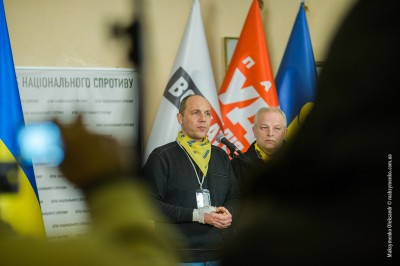At the UN, Italy Abstains on Nazism

The political significance of this vote is clear: NATO members and partners boycotted the Resolution which, first of all, calls into question Ukraine without naming it, whose neo-Nazi movements have been and are used by NATO for strategic purposes.
***
The United Nations Third Committee – in charge of social, humanitarian and cultural issues – approved on November 18 the Resolution “Combating glorification of Nazism, neo-Nazism and other practices that contribute to fuelling contemporary forms of racism, racial discrimination, xenophobia and related intolerance”.
The Resolution, recalling that “The victory over Nazism in World War II contributed to the creation of the United Nations in order to save future generations from the scourge of war” raised alarm for the spread of neo-Nazi, racist, and xenophobic movements in many parts of the world.
The Resolution expressed “deep concern for the glorification of Nazism, neo-Nazism and former members of the Waffen-SS” in whatever form. The Resolution, therefore, emphasized that “neo-Nazism is more than just the glorification of a past movement: it is a contemporary phenomenon.” Neo-Nazi and other similar movements “fuel contemporary forms of racism, racial discrimination, antisemitism, Islamophobia, Christianophobia, xenophobia and related intolerance”.
The Resolution therefore called on the States of the United Nations to undertake a series of measures to counter this phenomenon.
The Resolution, already adopted by the United Nations General Assembly on December 18, 2019, was approved by the Third Committee with 122 votes in favor, including the votes of Russia and China, two permanent members of the Security Council.
Only two members of the United Nations voted against it: The United States (a permanent member of the Security Council) and Ukraine.
The other 29 country NATO members, including Italy, certainly due to an internal directive, abstained. So did the 27 members of the European Union, 21 of them belonging to NATO. Among the 53 abstentions are also Australia, Japan, and other NATO partners.
The political significance of this vote is clear: NATO members and partners boycotted the Resolution that calls into question Ukraine first of all without naming it, Ukraine’s neo-Nazi movements have been and are used by NATO for strategic purposes.
There is ample evidence that neo-Nazi teams were trained and employed, under US / NATO direction, in the Maidan square putsch in 2014 and in the attack on Ukrainian Russians to provoke, with the detachment of Crimea and its return to Russia, a new confrontation in Europe similar to that of the Cold War.
The role of the Azov battalion – founded in 2014 by Andriy Biletsky, the “white Führer” who is a supporter of the “racial purity of the Ukrainian nation, which must not mix with inferior races,” is emblematic.
After being distinguished for its ferocity, the Azov battalion was transformed into a regiment of the Ukrainian National Guard, equipped with tanks and artillery. It preserved the emblem, modeled on that of the SS Das Reich, and the ideological formation of its recruits is modeled on that of the Nazis. The Azov Regiment is trained by US instructors, transferred from Vicenza to Ukraine, flanked by others from NATO.
Azov is not just a military unit, but an ideological and political movement. Biletsky is the charismatic leader especially for the youth organization, which is educated in hatred against Russians and militarily trained. At the same time, neo-Nazis from all over Europe, including Italy, are being recruited in Kiev. Thus, Ukraine has become the “nursery” of the resurgent Nazism in the heart of Europe.
Italy’s abstention is part of this framework, even not voting for the Resolution at the General Assembly. The Parliament agreed, as when in 2017 it signed a memorandum of understanding with the President of the Ukrainian Parliament Andriy Parubiy, who is the founder of the Ukrainian National Social Party organized on the Hitlerian National Socialist model; he is the head of the neo-Nazi squads that are responsible for murders and ferocious beatings of political opposers.
He will be the one to congratulate the Italian government on the UN Resolution on Nazism non-vote, in line with what he declared on television: “The greatest man who practiced direct democracy was Adolf Hitler.”
*
Note to readers: please click the share buttons above or below. Forward this article to your email lists. Crosspost on your blog site, internet forums. etc.
This article was originally published in Italian on Il Manifesto.
Manlio Dinucci is a Research Associate of the Centre for Research on Globalization.
Featured image is by andriy parubiy/Flickr/CC BY-SA 2.0

